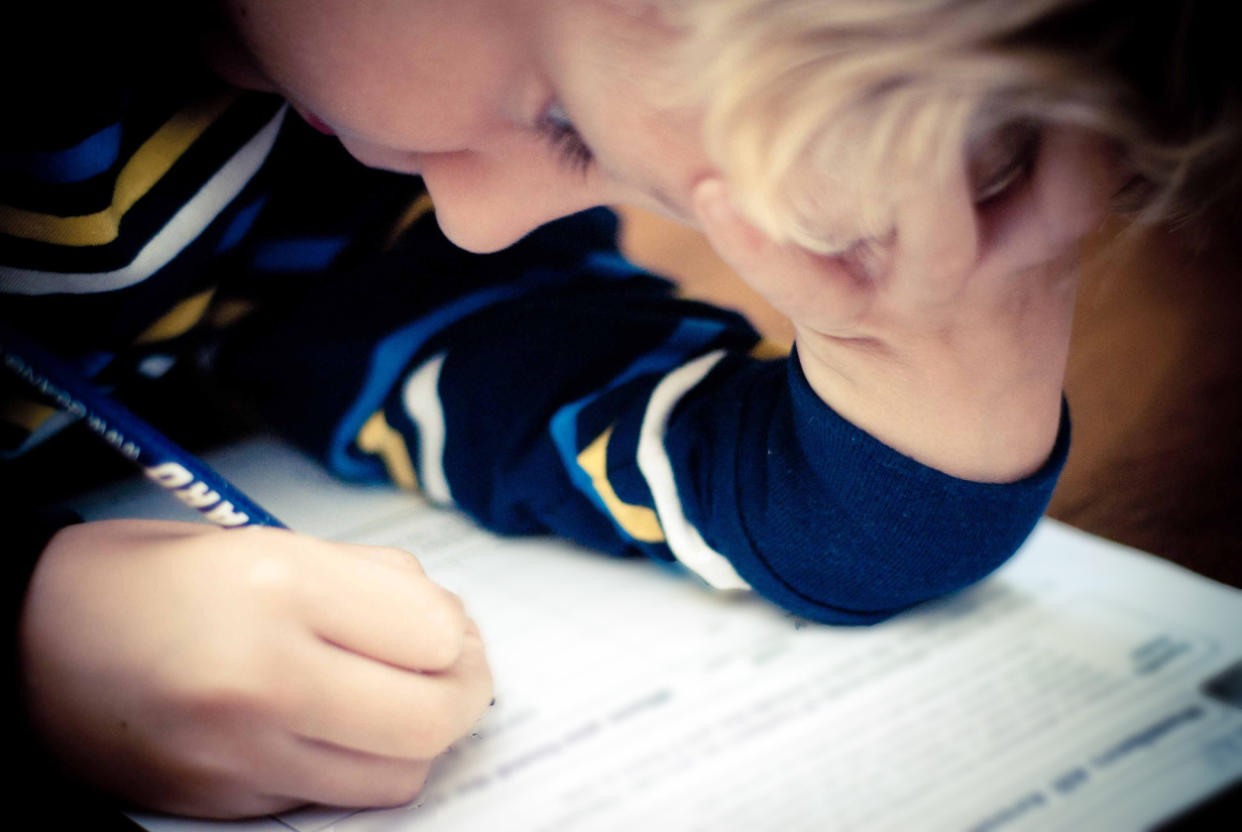Parents With Unrealistic Expectations May Set Up Their Kids for Failure

Turns out all that loving support from moms and dads, who let their kids know that they have high hopes for their academic success, can backfire — big time.
STORY: Secrets From Parents of Valedictorians
According to a new study published on Monday in the Journal of Personality and Social Psychology, when parents aspired for their child to get higher grades than they expected the student would actually get, the teen’s performance tanked. “Much of the previous literature conveyed a simple, straightforward message to parents — aim high for your children and they will achieve more,” the study’s lead author Kou Murayama, a professor of psychology at the University of Reading in England, explained in a press release. But that wasn’t what he found in his research — on more than 3,500 teens over the course of five years, looking at students’ math grades each year along with parents’ assessment of how much they want their child to earn a specific grade and to what degree they believe that the teenager will do so. “Unrealistically high aspiration,” he added, “may hinder academic performance.”
STORY: The Easy Thing All Parents Can Do to Ensure Kids Get Good Grades
In fact, all that well-meaning cheerleading that can help boost a kid’s grades, can be down right “poisonous” if it’s “excessive,” he said. “There are parents who put a lot of pressure [on kids] to get good grades even if it is very difficult for the children to get such a high grade,” Murayama tells Yahoo Parenting. “They tend not to look at children as they are but as their ideal children.”
Figuring out what’s realistic isn’t as tricky as it may sound, though. Linda Houser, president of The Association of Teacher Educators, tells Yahoo Parenting, it’s simply a matter of putting academic achievement in perspective. “What we see from parents is that ‘A’ is the grade that everyone is expecting their child to receive if they’ve studied and worked hard but it’s just not the case that that will happen,” she says. “Over the years what an ‘A’ means has changed too. It used to be considered above and beyond and only a very few received it. Now, it’s almost become the normal grade expected. That’s why we see ‘A+’ grades now and grade inflation.”
Top results on standardized test scores are often expected by parents as well, she adds. “But the way these tests are structured, you’re always going to have people in the lower quartiles,” says Houser. “Many parents think that their kids always have to be at the top yet they can’t all be.”
Flawless homework assignments are another off-base target. “Obviously children are learning,” she says. “If they already knew all this, there wouldn’t be any reason to have the learning experience. Sometimes, parents don’t realize that homework is about practicing a new idea and students may not be perfect at it the first few times. Learning takes time and to always strive for your child to ‘get it’ easily and perfectly the first time is not only unrealistic, it doesn’t benefit the child because they don’t get the experience of investigating the concepts, practicing and improving on it.”
Even the expectation of active class participation every day can be over the top, Houser adds. “Every child is a different and unique human being. Some learn by listening and thinking. Sure we want them to participate but that may look different from raising their hand each time and volunteering to answer every question. Sometimes it’s the quiet student who may be thinking and using her critical skills the best.”
So before parents spell out specific academic achievements that they hope their teens will achieve, Houser urges moms and dads: “Base your expectations on the student’s personal strengths and their individual areas of encouragement.” That, she says, is A+ parenting.
(Top photo: Getty Images)
Please follow @YahooParenting on Facebook, Twitter, Instagram, and Pinterest. Have an interesting story to share about your family? Email us at YParenting (at) Yahoo.com.

